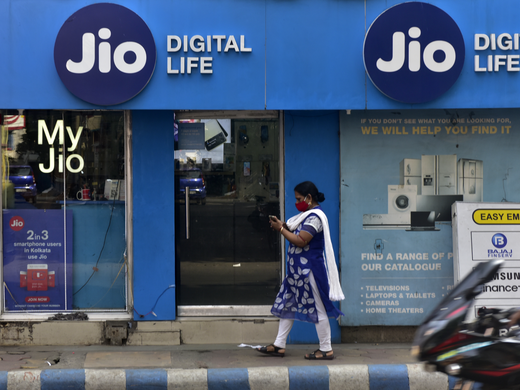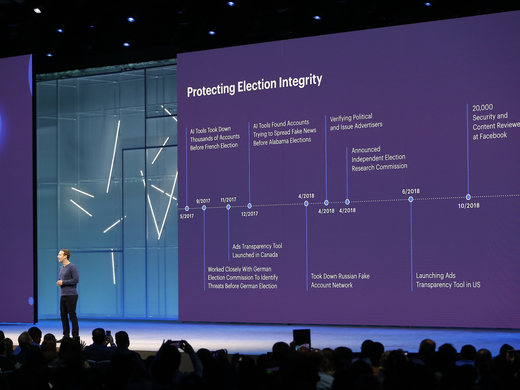Despite more than 20 years of bilateral and multilateral negotiations, the North Korean nuclear program remains one of the most pressing and intractable security threats in Northeast Asia. The North Korean régime continues its relentless pursuit of a credible nuclear and missile capability, despite its own calls for a return to the Six-Party Talks, which constitutes the only multilateral effort devoted to the denuclearization of the peninsula. Within the last year, Pyongyang has conducted regular missile tests and has claimed to have succeeded in miniaturizing nuclear warheads, an achievement that, if proven true, would significantly enhance the level of threat.
North Korea’s national identity is increasingly linked to nuclear weapons. Its propaganda inextricably ties the country’s very survival to its nuclear program, which has morphed from a mere deterrent to an all-encompassing foreign policy tool as well as a symbol of the country’s power and technological prowess. North Korea’s nuclear status has been enshrined in its constitution, and Kim Jong-un’s signature policy, the Byungjin line, stipulates that the country will simultaneously pursue economic development and the development of its nuclear program.
Despite the fact that the Kim Jong-un régime has shown absolutely no willingness to relinquish its nuclear arsenal, all Six-Party Talks members – North Korea, South Korea, the United States, China, Japan and Russia – continue calling for a return to the negotiation table, more than six years after the last round of talks. So far, incompatible pre-conditions between two main camps have been the main obstacle to the resumption of talks. The United States and South Korea demand that North Korea show sincerity by taking concrete steps toward denuclearization before re-engaging in dialogue, whereas China, Russia and North Korea have called for an unconditional return to talks. Given Pyongyang’s refusal to give in to Washington’s demands and its commitment to develop its nuclear program, there is little hope of a resumption of talks, and meaningful dialogue is an unrealistic prospect. In this context, why should the international community pursue an option that is doomed to failure?
The outright abandonment of the dialogue option would have potentially damaging consequences for regional security. Given that the Six-Party Talks have been since 2003 the only international effort with the expressed purpose of denuclearization, their abandonment would in essence be perceived as tacit recognition of North Korea’s nuclear status and give its nuclear program a veneer of legitimacy. Once Pyongyang’s right to have nuclear capability is recognized, hopes of ever attaining a negotiated settlement would by and large be dashed. While engagement could be pursued on other fronts, the death of the Six-Party Talks would leave containment and pressure as the only realistic policy option for denuclearization. And if history has taught us anything, it is that the North Korean régime tends to respond to pressure by hardening its position.
Giving up on the Six-Party-Talks would also put an end to hopes of engaging the isolated régime in a multilateral setting. The North Korean régime is notoriously hesitant to engage the international community, as epitomized by the fact that Kim Jong-un has yet to travel outside of the country or meet with any other foreign leader. However, Washington’s insistence on verifiable steps towards denuclearization means that it is in effect squandering any possibility of engaging Pyongyang. For all its flaws, before the deadlock, the Six Party-Talks produced a few tangible results – limited agreements in 2005 and 2007 – and provided all stakeholders with an opportunity to exchange views and voice security concerns. No other mechanism has fulfilled this purpose since 2003, when the first round of talks took place.
Without officially discarding the goal of denuclearization, the Six-Party Talks members should avoid making it the essential and unique aim of negotiations and instead change the focus on regional security issues as a whole. By so doing, denuclearization can remain officially on the agenda, but a deadlock on this issue will not jeopardize the whole process, as has been the case until now. Furthermore, by officially making the Six-Party Talks a general security forum (and perhaps changing its name in the process) rather than a dialogue whose explicit focus is North Korea, this allows the American and South Korean administrations to abandon their pre-conditions and re-engage Pyongyang without being seen as offering concessions to the Kim Jong-un régime.
In the absence of any other forum involving North Korea, the Six-Party Talks possess several notable advantages. First, it opens up an important communication channel between the United States and North Korea and provides a window on each other’s objectives, desires and worldviews, and in consequence reduces the risk of misunderstanding and miscalculation. With no diplomatic relations, there is currently no other way for Washington and Pyongyang to engage in dialogue and build empathy. Second, South Korea and North Korea’s relations have significantly soured in the past year, with Pyongyang seemingly abandoning the idea of rapprochement for as long as South Korea’s Park Geun-Hye is in power. A resumption of multilateral dialogue would bring the two rivals back at the same table, and with Beijing’s mediation, could possibly help lower tensions on the peninsula. Furthermore, even in the case of a tacit abandonment of the goal of denuclearization, the new iteration of the Six-Party Talks could potentially lead to a moratorium of uranium enrichment or long-range missile tests and an agreement on the return of international inspectors.
With a six-and-a-half-year deadlock and no sign of a breakthrough, it is time to put an end to the delusion that the Six-Party Talks in their current form will yield any significant result. Without changes in the nature or stated objective of the talks, we run the risk of perpetuating the myth that the Kim Jong-un régime is ready to denuclearize if only the right incentives are put forward. The current régime is highly unlikely to denuclearize as long as it is in power. However, the diversity of threats emanating from the country more than warrants the resumption of a broader security dialogue that directly involves Pyongyang. Without it, we are condemned to perpetually limiting ourselves to crisis management.
This post first appeared on the CDA Institute blog.


